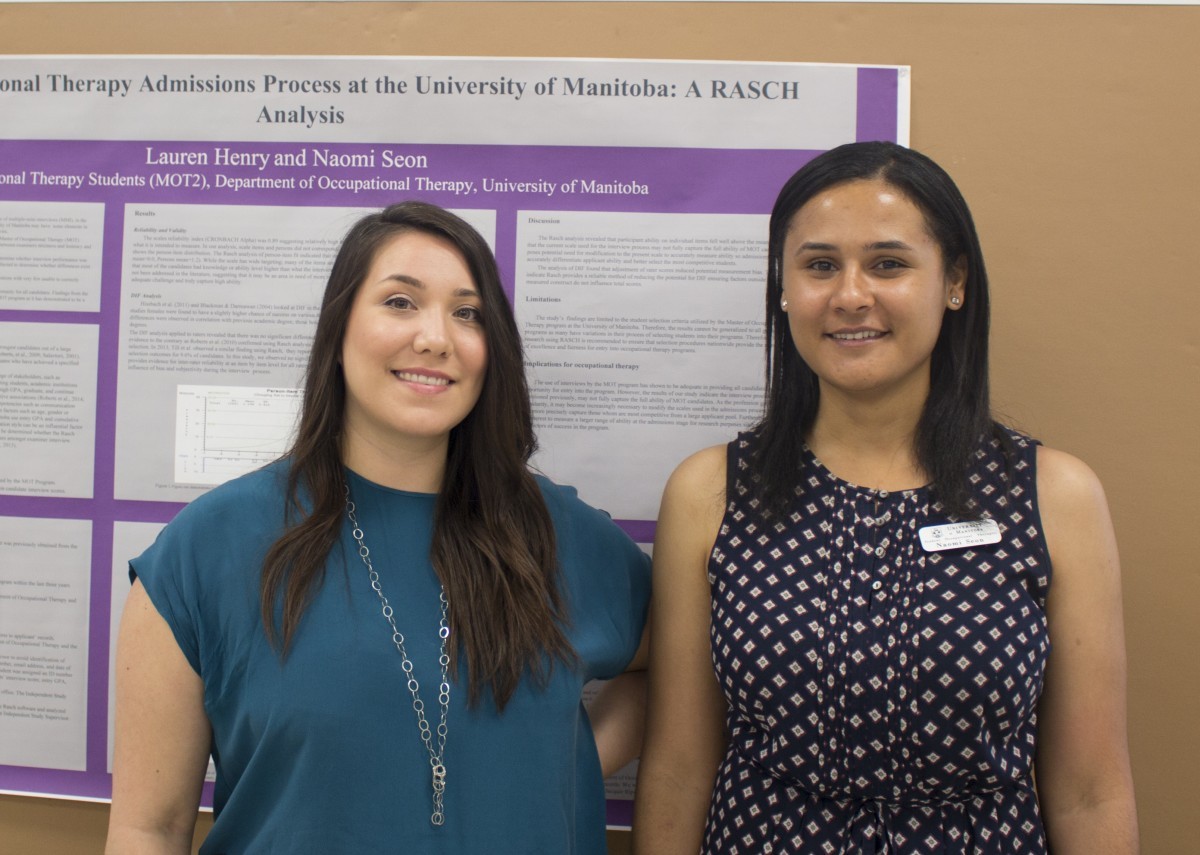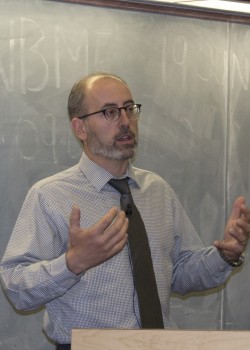
Occupational Therapy students Lauren Henry and Naomi Seon made their presentation at the MOT Independent Study Symposium.
Help for the Homeless
Dr. Jino Distasio delivers keynote speech at annual OT symposium
What is the role of occupational therapy in primary care?
That was one of the research areas showcased when the Department of Occupational Therapy in the College of RehabilitationSciences hosted the 11th annual Master of Occupational Therapy Independent Study Symposium June 25. The symposium gives second-year OT students the opportunity to present their research findings on a variety of topics effecting their profession, including the work-life balance of occupational therapists; client-centred goal-setting with individuals with intellectual disabilities; and the perspective of occupational therapists on wheelchair service delivery in Manitoba.
Lauren Henry, an occupational therapy student whose project looked at the admissions process at the University of Manitoba, looked forward to the sharing what she’d learned with her fellow students and instructors.
“Knowledge translation is really important,” Henry said. “We sit with all this information for a year and we have to bring forward what’s most important for the community, faculty and peers and to present things that are really important for them.”
Keynote speaker Dr. Jino Distasio, Associate Vice-President of Research and Innovation, and the Director of the Institute of Urban Studies at the University of Winnipeg, presented on Mental Health, Homeless and Housing First: Stories of Success and Challenge in Transiting from the Street.
Distasio spoke about the growing divide between the very rich and the very poor, as well as the shrinking middle class. These and other factors are contributing to a shortage of housing for some of the most vulnerable in our society, including those with addictions and mental health issues.
According to Distasio, homeless shelters are temporary band aids that don’t address the key issues of poverty and homelessness.
Distasio is involved with a nation-wide project called At Home Chez Soi, whose mission is to house homeless Canadians in Moncton, Montreal, Toronto, Vancouver and Winnipeg. The project focuses on a ‘housing first’ approach, that places an emphasis on offering access to permanent housing to individuals who are homeless and who may have mental health issues without any prerequisites for acceptance.
“Homeless shelters do not end homelessness,” Distasio said. “Housing first ends homelessness very effectively and affordable, safe quality housing can be done in a cost effective manner.”
Gina Laliberte, an MOT 2 student who is about to start a six week advanced fieldwork placement at Siloam Mission, agrees with the approach of housing first.
“Housing first is a very client-centred approach which aligns strongly with occupational therapy,” said Laliberte. “It’s important to be mindful that these people may feel that they don’t have any agency in their lives and this approach provides the opportunity to make choices and take responsibility for those choices with appropriate supports in place. If you give people the opportunity to make decisions for themselves there’s a greater chance of success.”







